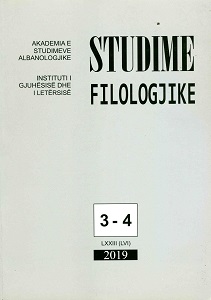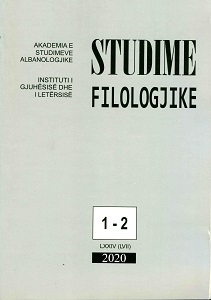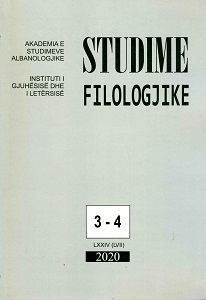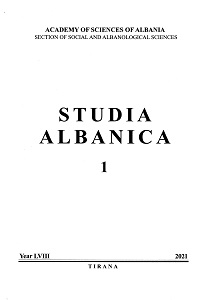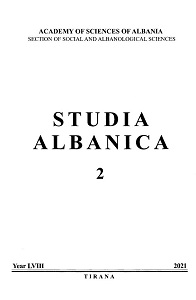Author(s): Spiro Gjoni / Language(s): Albanian
Issue: 01-02/2020
Goliku is not only a well-known writer. His activity, is spread in the field of journalism and criticism, too. There are a lot of articles, connected with different problems of literature and creativity, published in a number of newspapers and literary magazines. On the other side he has taken part with his speeches, lectures and debates about the problems of literature and especially thy problems of literature of children and youth, organized in Albania and abroad. The subjects of his writings and discussions, principally lights such problems, as: the education of children, the level of creativity and literature about the children, the conditions of libraries and the use of books from children and youth. Among all these problems, Goliku underlines one that is connected with the quality of literature that is published during these last years. The new time, that has come after years of dictatorship, both with the freedom, has brought a new situation which puts new duties to the writers and creators. This is very important to Goliku who advises the writers to be careful and exacting in their work to bring always good works, modern in shape and content. One of his well know ways to treat the days problems in the field of literature and especially in the field of criticism, are for Goliku his interviews. He likes this kind of activity because it gives him the possibility to open the debate, beyond the questions of journalist and so, to express his opinions on other problems, too. His interviews treat a lot of contemporary problems of literature. Seeing only a number of their titles we can believe on this (“Do the children read and what do they read?” “Children literature needs critique” “The critics of silence”, ect.) In his critics and interviews, Goliku not only criticizes but he also, gives the ways how to get out of this situation. Another question which Goliku brings to his writings or about which he speaks in his debates, in different activities is connected with good models and examples of our literature in the field of critics. To express this, he brings to our mind the names of our great writers, from reborn to the writers, of our days, who have given their contribute in the field of critics (De Rada, Naim Frashëri, Çajupi, Mjeda, Fishta, Kuteli..., Kadare, Spahiu, Ballanca, ect) There are many problems that interest to Goliku, but we touched only a part of them, to tell his activity in field of literature in general and specially in the field of critics.
More...
